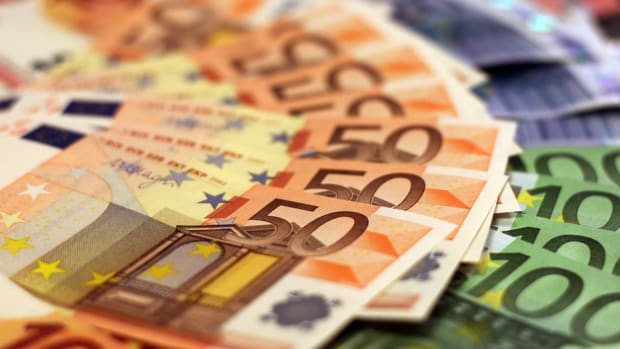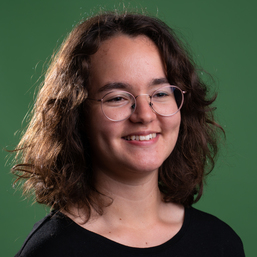
Russian UvA students in financial trouble due to sanctions against Russia
Students at the UvA of Russian origin are also being hit hard by the war in Ukraine. Their financial situation is becoming more and more difficult. ‘If this situation continues, I might not be able to able to study at the UvA next year.’
Russia's invasion of Ukraine is causing worldwide condemnation. From Ikea and Heineken to Visa and Mastercard: all sorts of companies are boycotting Russia. Before that, the EU already decided to block several banks. The boycotts are reaching Amsterdam too: these two Russian UvA students are experiencing financial trouble for a few weeks now.

On Wednesday, the Visa credit card of the Russian Anna (20, her real name is known to the editor in chief) has been blocked. On that account her father made a monthly deposit from Russia for Anna’s living expenses. Anna and her father are now trying to open a Dutch account where she can access her Russian money, ‘but this situation is incredibly stressful’.
Fortunately, Anna's mother lives in Finland. She might be able to help out if the financial situation in Amsterdam becomes really tense. 'I also have enough savings until the summer in the Netherlands,' Anna says, 'but if the situation continues for a long time and I can no longer access money from Russia, I don't know if I will be able to return to the UvA after the summer. I would hate that.'
What also doesn't help is that the ruble, Russia's currency, has lost fifty percent of its value due to the Ukraine war. Should she and her father find a way to get the money from Russia to Amsterdam, the amount of money will most likely be a lot lower than before.
Living off savings
Anastasia (21, her last name is known to the editor in chief), from Moscow, is in a similar situation. Her monthly allowance, which her father sent, has also been cut off by the sanctions. Luckily, Anastasia also works in a café, which has given her some savings. 'That will help me get through until about June. As a non-EU student, I'm only allowed to work 16 hours a week, which doesn't help: I'll never be able to pay for my apartment with that amount of money.'
Anastasia doesn't know yet what she will do next. 'There is so much uncertainty at the moment, everyday things are different. Last week some of my friends from Ukraine and Russia were still able to withdraw money. Others were already unable to do so. I'll just have to wait and see. It's hard to make decisions; I have the feeling that I'm always behind on information. I think I'm going to write to the UvA's emergency fund, which recently started a crowdfunding.'
Global sanctions hit Russia hard. This is also the intention. The academic community is also freezing cooperation with Russian institutions. In that light, isn't it strange that the UvA decides to start a crowdfunding campaign for both Russian and Ukrainian students? And will they get the same amount of money later on?
These are questions the UvA has also asked herself, says a spokesperson. ‘We want to offer help to Ukrainian scientists in need. As for the students from Russia who were already in the Netherlands before the invasion: these are our current students, we consider them part of the academic community and think it is important not to hold them personally responsible for the Russian regime's invasion of the Ukraine. The Minister of Education has also explicitly asked us to do so. Hence, we are currently providing the emergency aid to sitting students without regard to their background.' For the longer term, the UvA may still be considering how long and under what conditions emergency aid will be provided to Russian students, the spokesperson said.
Shame
The war also has an emotional effect on the students. 'As a Russian, I am very ashamed of my country,' says Anna. 'Of course, it's not my fault that Putin was elected in the first place, or that this war is happening now. Nor is it the fault of my Russian family. On the other hand, it feels weird to put myself in this victim role. Because Russia is destroying Ukraine right now, so those citizens are suffering from the war much more than I am. I get very sad about this situation. The stress affects my mental health and this affects my studying.' The same goes for Anastasia. 'I am against war in any scenario. I think it's terrible what people are going through in Ukraine, it's a nightmare,' she says. 'There are protests in Russia, but everyone is arrested. There is no freedom of speech and the media is censored.'
The situation is also difficult for Anna because most of her family still lives in Russia. Contact with her relatives there is not easy because since the war Russia has placed more restrictions on the use of social media. 'My nephew of 19 has been in the army for six months. The last I heard from my aunt is that he is still training now, but it could be that he will also be sent to Ukraine to fight. Because it is so difficult to reach my family I do not know if he is going to have to fight or not. I'm very worried about that,' says Anna.
Threatened
Stories of Russians receiving threats because of their background appeared in other media. Anna and Anastasia have not experienced this yet. Anna does see that in some countries Russians are stereotyped as people who are weird and drink a lot of vodka. Not necessarily here in the Netherlands, but for example in Finland, which lies next to Russia. ‘The two countries have a complicated relationship. When I lived there, I was bullied in elementary school because I am Russian. And friends of mine faced violence purely because of their background. This is happening more since the war started. In the Netherlands I have not experienced anti-Russian hatred yet, but I am careful. Since the war, I often tell people when I introduce myself that I am Finnish, not Russian. Fortunately, my friends at the UvA are very sweet. They understand that the war is not my fault and show a lot of compassion.'
Indeed, the war has not made meeting new people any easier, says Anastasia too. 'Fortunately, at my internship the background of colleagues is diverse. Yet I notice that I have to think a bit longer when people ask where I come from. Do I immediately say that I am Russian, and should I then also tell how I look at the situation?' Anastasia experienced once that a girl only answered 'o' when she said she was from Russia. 'That did surprise me, although she also said afterwards that it must be difficult for me, this situation. Fortunately, the majority of people respond sympathetically.'
Anastasia's boyfriend is also from Russia. 'He is afraid to go back, because of the danger that he might be sent to the front. I've heard that now they send random people to war. Before, as a man you had to do military service, but there were quite a few exceptions, being a student for example. Now I hear from male friends that they are afraid of suddenly being called up. Some have therefore fled to Turkey.
For fear of possible Russian reprisals, both students did not want to be quoted with their full or real names. It is punishable by law to protest or mention the word 'war'. Given that most of Anna and Anastasia's family in Russia is still in Russia, they are cautious about publicly proclaiming their opinions.


